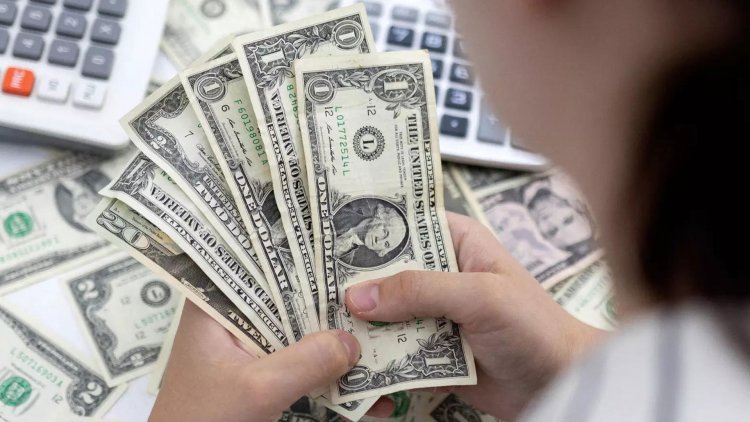Before Powell's speech, the dollar is expected to experience its worst monthly loss since 2010
One of the better performers was the euro, which increased by as much as 0.3% ahead of euro zone inflation data that may have revealed the first slowdown in inflation since June of last year.

Prior to a speech by Federal Reserve Chair Jerome Powell on Wednesday, the dollar eased from a one-week high, and optimism over a potential relaxation of China's COVID restrictions put the greenback on course for its biggest monthly loss in more than 20 years.
One of the better performers was the euro, which increased by as much as 0.3% ahead of euro zone inflation data that may have revealed the first slowdown in inflation since June of last year.
In November, harmonised consumer inflation is predicted to have increased by 10.4%, which is less than the 10.6% final estimate for October. Still, it is greater than five times the target rate set by the European Central Bank. However, after nearly two years of inflation accelerating practically nonstop, investors may welcome any indication that the worst is finally behind us.
Tuesday saw a rise in European asset prices as a result of lower inflation in Spain and several important German states.
According to Michael Hewson, chief markets strategist at CMC Markets, "the main focus is set to be on today's flash CPI from the EU, which could set the scene as to whether we get 50 basis points or 75 bps when the ECB meets in just over two weeks."
If the trend of commodity prices over the past few months is any indication, there is growing evidence that we may be approaching the pinnacle of inflation.
The euro recently increased 0.2% to $1.0348 after hitting a one-week low of $1.0319 earlier on Wednesday. It increased 0.1% to 86.46 pence when compared to pound.
The U.S. dollar index, which gauges how the dollar performs versus six important currencies, dropped 0.22% to 106.64, from a high of 106.90 overnight.
As investors increased their expectations that inflation has peaked and the Fed will soon signal a transition to a softer stance on monetary policy, it lost almost 4.3% in November, which is its worst one-month decrease since June 2010.
At 1830 GMT, Powell will give a lecture on the state of the economy and the labour market to the Brookings Institution in Washington, while the private-sector employment report for November is due at 1315 GMT.
According to the financial markets, there is a 63.5% possibility that the Federal Reserve will only increase interest rates by a half-point on December 14 and a 36.5% chance that rates would rise by another 75 basis points.
On Monday, St. Louis Fed President James Bullard said that there is still "a ways to go" for policy tightening while New York Fed President John Williams said that the central bank needs to move forward with rate increases.
The Fed's dissatisfaction with current inflation and employment levels is the underlying message, according to Bart Wakabayashi, branch manager at State Street in Tokyo.
At this time, Powell "will continue to err on the side of hawkishness."
The dollar increased 0.1% in value relative to the yen to reach 138.75 yen as the pair held steady after recovering from a three-month low of 137.50 on Monday.
At $1.1962, sterling was unchanged.
Data from China, meanwhile, revealed manufacturing was weaker than anticipated as the government's zero-COVID policies continued to stifle the economy.
In comparison to the dollar, which dropped 0.1% to 7.1483, the offshore yuan advanced.
Chinese health officials announced on Tuesday that they would speed up COVID-19 vaccines for the elderly in an effort to get around an obstacle in the way of easing contentious "zero-COVID" limitations, which had recently triggered fervent protests.
"Overall, it seems like China is prepared to start over?
In order to live with COVID, "In a client note, Commonwealth Bank of Australia strategist Kim Mundy said.




 admin
admin 




















